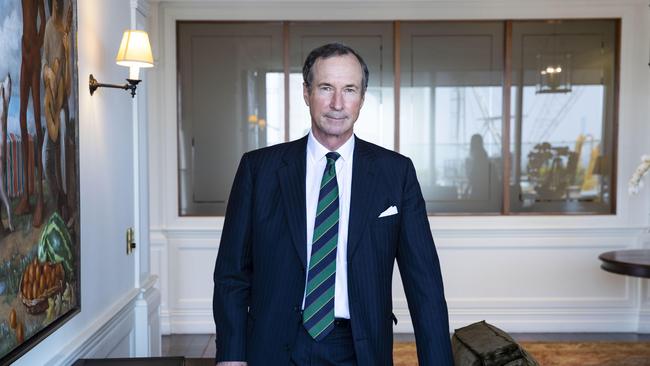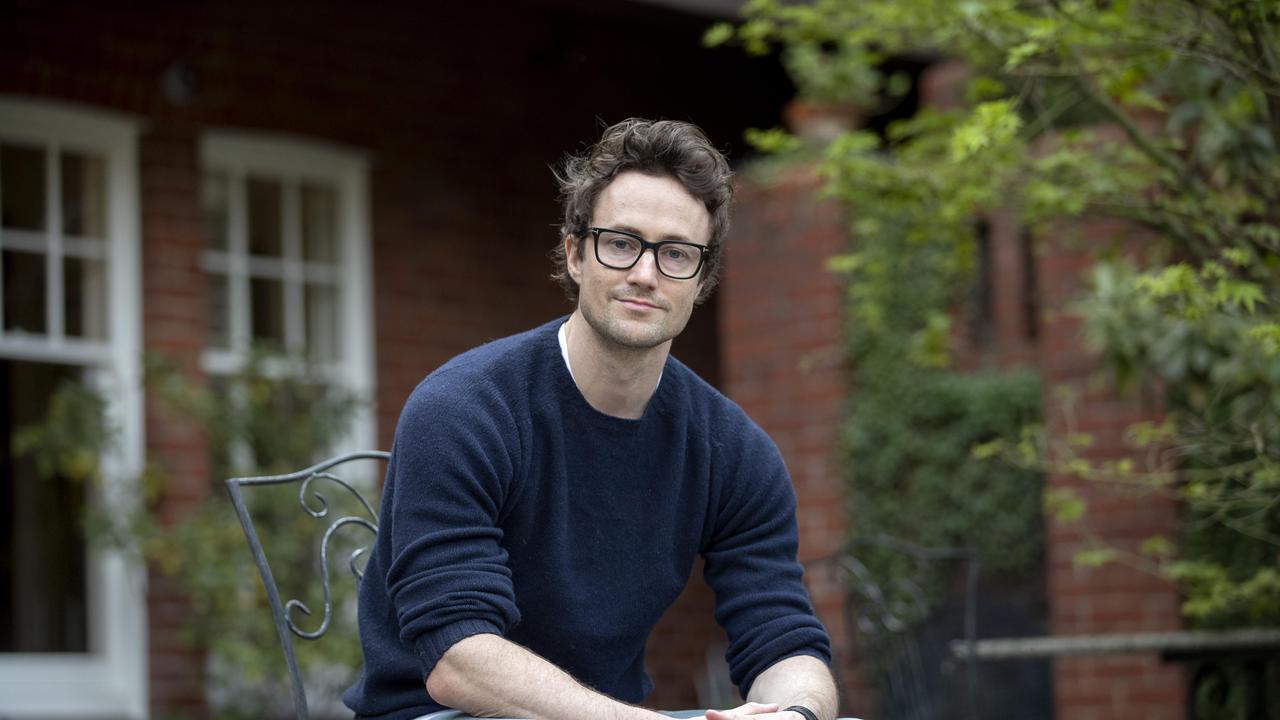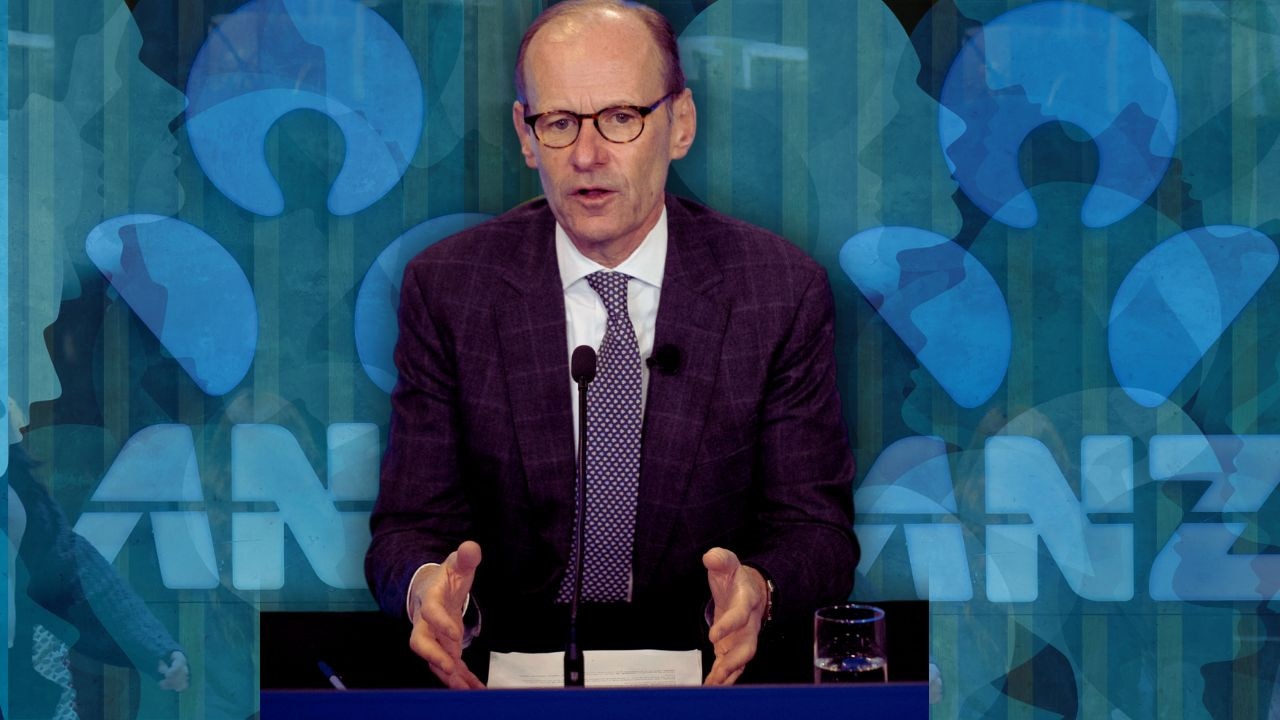PEP boss Tim Sims warns of post-Covid ‘mad minute’ created by inflation and debt
PEP boss Tim Sims reckons the Covid pandemic could delay moves by private equity firms to exit their investments by ‘up to a year’.

The Covid pandemic and “noise” associated with government assistance and disruption is likely to delay moves by private equity firms to exit their investments by up to a year and impact anticipated returns, according to one of the nation’s most senior private equity executives.
In a wide-ranging interview with The Australian, Tim Sims, the co-founder and managing director of Australia’s largest private equity fund, Pacific Equity Partners, also warned about the potential for global stimulus measures to fuel inflation, with subsequent serious consequences in a world of rising short term government debt.
Mr Sims described the Australian government’s management of the Covid crisis as “world class to date”, especially what he called its “supreme efforts” to support the vulnerable in the community ahead of the anticipated arrival of a Covid vaccine.
“In Australia the bottom of the GDP contraction was less and the recovery, if we remain on track, will be faster than almost all other countries. Whatever happens next we did almost the best with what we knew at the time and we have learnt pretty quickly from what we didn’t get right,’’ he said.
While he supported governments worldwide investing in long-term debt for stimulus, he stressed the measures needed to be directed towards productive outcomes.
“And there is the shadow concern that lurking back in there, is the possibility of inflation remerging. That is important because increasingly government debt is on a short-term basis. You can see that in the US Fed bond purchases and in the shortening maturity of traditional federal debt. If we end up with short term large debt, even if it is fixed interest, and inflation - however low the probability is - does take hold, we are going to be in a terribly dangerous place because the coupon on the debt will be inflation plus and the debt will be enormous,” Mr Sims said.
While he stressed the doomsayers that warned of an inflation outbreak following the massive stimulus measures implemented in the Global Financial Crisis had been proven wrong, he predicted the world would likely see a ‘mad minute’ in the Covid aftermath.
“As we saw at the end of both world wars,’’ he said.
“Currently much of the short-term effort has gone into stimulating consumers. Simplistically if demand exceeds supply in a damaged international manufacturing and trading system inflation may ensue, if this is sustained that is quite a challenging prospect given the international level of indebtedness.”
PEP, which was established in 1998 and is the largest of the traditional buyout managers in Australia, did four major deals in 2020, including two from its $2.1bn so-called “Fund VI” that had its first close in mid-2019.
It purchased schools and childcare centre supplies company Modern Star in a deal worth about $600m. It also bought managed services provider and software developer Citadel Group, which was valued at more than $500m.
The other two deals were from PEP’s $1bn Secure Assets Funds, including the purchase of Australia’s largest independently owned private energy network provider, WINconnect, for around $250m and the acquisition of ASX-listed remote power station operator, Zenith Energy, for $260m.
The Zenith deal, the fourth investment from the Secure Assets Fund, was through a PEP-led consortium called Elemental Infrastructure.
“I am pleased to say that PEP has invested in four primary businesses and 12 bolt-on transactions this year, which is at the upper end of our normal run rate deployment of between $500m and $1bn a year,” Mr Sims said.
Over the past two years, PEP has also secured some lucrative exits from its investments, including the $NZ300m ($281m) sale of Manuka Health and the $NZ500m sale of New Zealand-based Academic Colleges Group‘s kindergarten to year 12 schools business to the Inspired Schools Group from the UK.
Mr Sims said PEP had been fortunate during Covid that it had a crop of durable businesses from its previous fund - including Patties Foods, the owner of the iconic Four‘N Twenty, Herbert Adams and Nanna’s pastry brands; and healthcare groups Life Healthcare and Evolution Healthcare - that were established and growing and there was no pressing need for exits.
“Having said that, it is reasonable to assume that it will take a while for the earnings trajectory of otherwise good businesses to return to a ‘clean normal’, with JobSeeker and JobKeeper and other short-term effects, both positive and negative flowing through the P&L. To give you a sense of the experience of our businesses, rather than growing profits at a typical 20 per cent plus for the year, we have seen an aggregate profit growth of around 10 per cent. There is often noise around that in both directions with the changing effect of lockdowns,’’ he said.
Disrupted year
“We have had a disrupted year. A year in which, because of the defensive nature of the investment selection the full potential of the invested companies hasn’t been diminished, the ‘demonstrated speed across the ground’ has in some cases been less than planned in others more. For some this will have an impact on exit timing. A sensible conservative assumption for investors across the industry will be that this could delay the maturation for your average business for up to a year. There will of course be extreme outliers for these same reasons on either end of that spectrum.”
He said while good businesses would still achieve the same so-called multiple of money (‘MoM’) that they were destined to achieve when they were exited - either through a trade sale or an IPO - the investment returns (‘IRR’) could be impacted because of the extra time frame involved.
“The most valuable investment activity is to grow the profits in the business towards ‘full potential’ and then establish a clear growth trajectory beyond that point. PEP have been fortunate that for more than 20 years the MoM generated on investments has been 2-3 times the money at an average annual net return north of 20 per cent. In a low interest rate, low growth environment, the multiple of money generated for investors is a particularly important feature,’’ he said.
Others in the private equity industry have warned about the impact of government stimulus and changes on deals, most notably the government’s move to temporarily relax continuous disclosure and insolvent trading rules, which has led to a lack of visibility of the performance of potential public targets.
Government stimulus has also artificially supported the valuations of some publicly listed targets for private equity firms despite the uncertain economic outlook.
“We are seeing it in the investment origination space where we are in close discussions with a number of businesses that are saying to us, ‘We would love to bring on you guys as investment partners, but actually we think that you will be confused by our P&L from 2020, give us six months to show our real P&L,” Mr Sims said.
“We are looking at how we structure deals, to include for example an earn out. Our business model doesn’t require us to buy at a very keen price. The real value for us is gaining a partnership with strong management and a robust business, rather than buying for less money.”
What the world will look like
Looking ahead to the post-Covid working world environment, Mr Sims challenged the assertions of some commentators who claim the traditional office workplace will be irreversibly transformed by the working-from-home phenomenon.
“The world on the other side will ‘be different but similar’ to the world we have now; perhaps more similar than many believe. Mostly, we used to go to work because there was a good reason for doing that. Much of the work that goes on in the economy particularly in the service space, which is more than 85 per cent of GDP is person-to-person work. In many industries the process of getting promoted in an organisation has a lot to do with face time and dealing with real people,” Mr Sims said.
“It still makes sense to go to work for training purposes, for political purposes and just the plain maintaining the intensity of teamwork. When the Geiger counter settles down, it will be different with more tolerance for example for work from home, but much more similar than many believe.”
In the geopolitical world, the relationship between Australia and China has become deeply strained in recent months, prompting the Chinese to make increasingly belligerent threats to close its markets to Australian exports.
Bans have been mooted for sugar, copper ore and concentrates, wool, lobsters and wine after punitive action has already been taken against Australian barley, beef, timber and coal.
Australia recently referred China to the World Trade Organisation to challenge action taken against barley exports.
Mr Sims described the issue as a “strictly political one” that “must belong to the national leaders on both sides to decide, what is in the national interests and what measures need to be taken to protect those perceived interests.”
“It will be a very painful position for incumbent businesses caught in a negative place. Government seems alert to this and sensible and supportive,” he said.
“For selective investors, we can only conclude that disruption to trade and changes in trading patterns present an additional challenge. Some sectors will be gravely impacted by this, some not at all. The only sustainable point of view needs to be that the duration and the precise nature of the emerging footprint is unknowable: ‘caveat emptor’”.








To join the conversation, please log in. Don't have an account? Register
Join the conversation, you are commenting as Logout